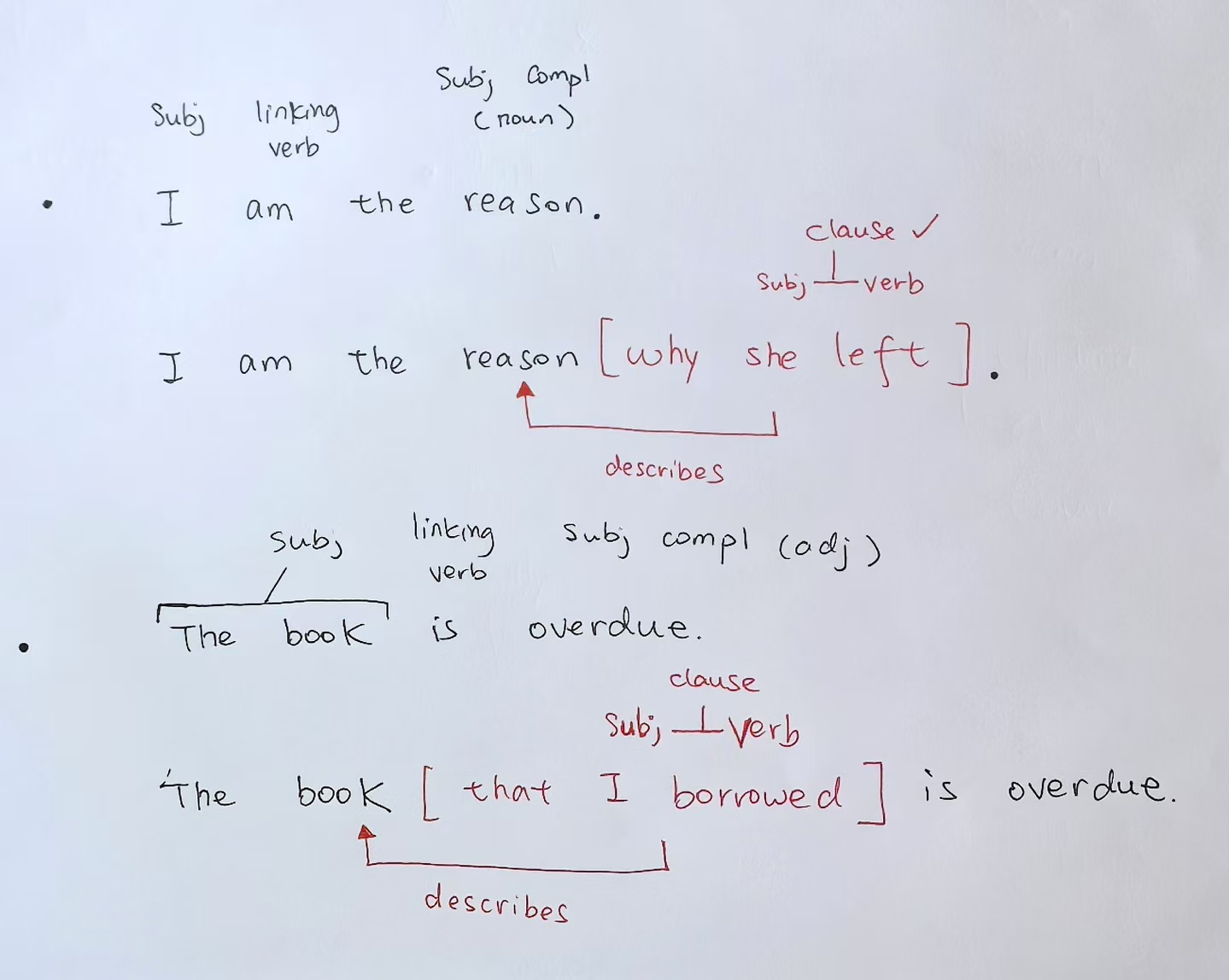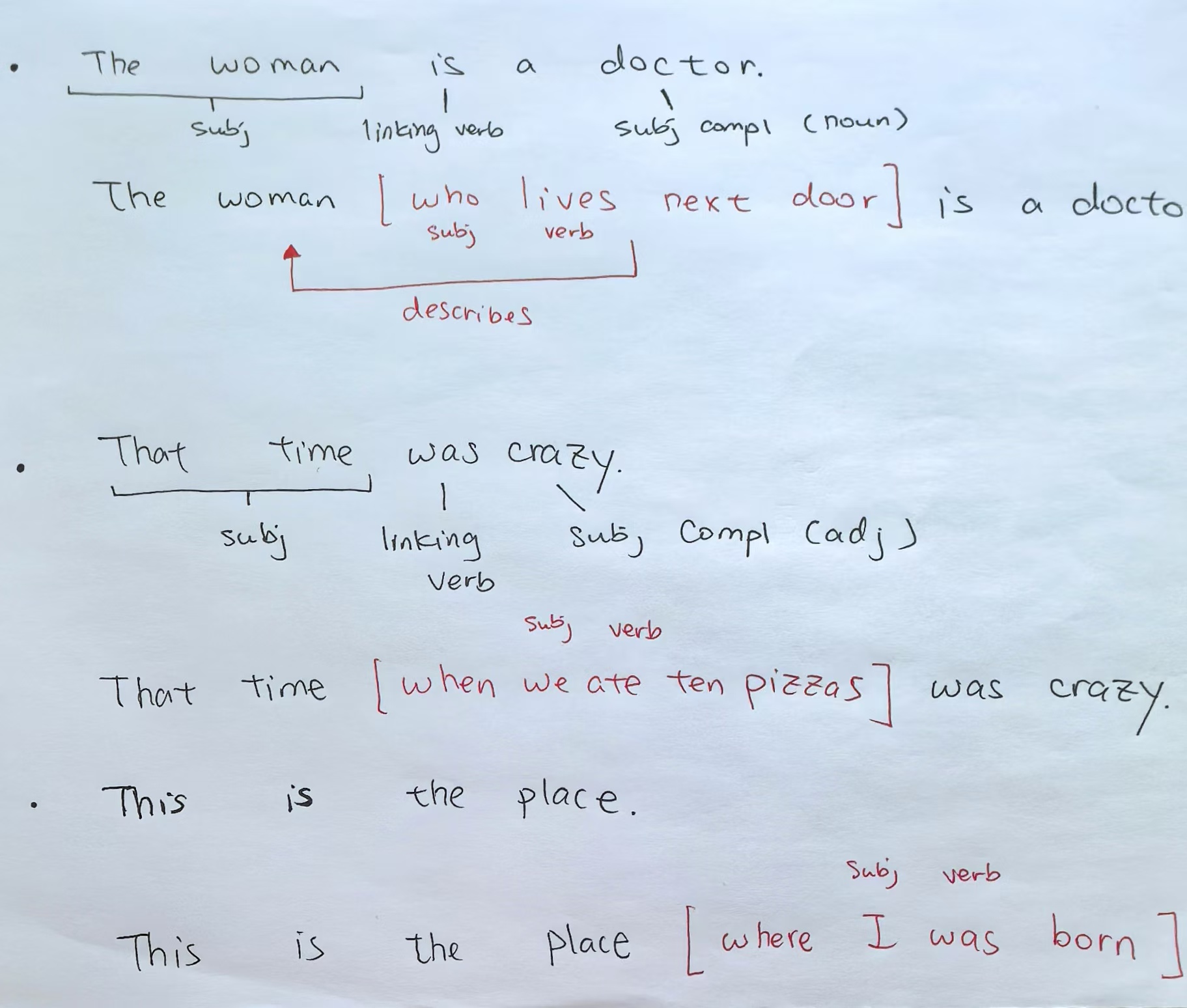Dependent clauses, also known as subordinate clauses,
are groups of words that contain a subject and a verb but cannot stand alone as a complete sentence.
They depend on an independent clause to form a complete thought.
Here are the three main types of dependent clauses:
Noun Clauses
ref – https://7esl.com/noun-clause
Function: Act as nouns within a sentence. They can be subjects, objects, or complements.
Begin with:
Relative pronouns (who, that, whom, whose, which)
Compound pronouns (whoever, whomever…etc)
Noun clauses often ALSO start with “wh”-words such as (what, which, when, where, whether, and why)
Examples:
What he said made everyone laugh. (subject)
She doesn’t know where they went. (direct object)
We fight when there are enemies. (object)
This is [what is boils down to].
I ran [when I saw the police].
Money is [why we don’t go on vacation].
Whoever said that was mistaken. (subject)
I wonder what she is thinking. (object)
The truth is that I was scared. (complement)
Whether she will come is still uncertain. (subject)
Noun clauses can also start with if to indicate a choice or condition. These clauses are typically used as subjects or direct objects.
For example:
He needs to decide if he should accept the offer. (direct object)
Relative (Adjective) Clauses
Function: Modify nouns or pronouns, providing more information about them.
Begin with: Relative pronouns (who, whom, whose, which, that)
Examples:
My mother, [whose last name is Ma], loves horses.
The cake, [which was decorated with fresh flowers], was delicious.
[The book that I borrowed] is overdue.
describes book.
[The woman who lives next door] is a doctor.
describes woman.
Begins with (where, when, why)
I am [the reason why she left].
[That time when we ate ten pizzas] was crazy.
[The place where my wife gave birth] is still there.
This is the [place where I was born].
[The book that I borrowed from the library] is overdue.


Adverb Clauses (Adverbial Clause)
ref –
Function: Modify verbs, adjectives, or other adverbs. They answer questions like how, why, when, where, to what extent.
Begin with:
Subordinating conjunctions (because, since, although, if, when, while, before, after, as…etc)
Say we have a sentence:
Mao became the leader of China
And another sentence that explains the above:
He (subj) consolidated (verb) power (obj) in 1902 (obj compl).
We need to add a subordinate clause to explain “how” of the verb became
If we add the subordinate conjunction after it becomes:
After he consolidated power in 1902
A subordinate clause needs a main clause.
After he consolidated power in 1941, Mao [became] the leader of China.
This type of subordinate clause is known as adverbial, because it explains the [how/why] for verb in the main clause.
Examples:
Because it was raining, we stayed inside. (modifies sentence ‘we stayed inside’)
He is taller than his brother is. (modifies adjective ‘taller’)
She sings whenever she feels happy. (modifies verb ‘sings’)